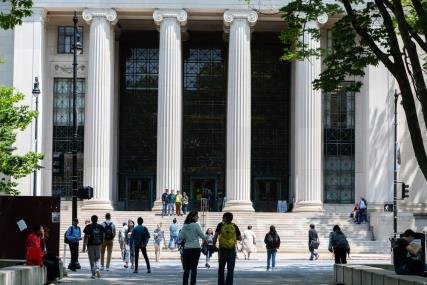The Massachusetts Institute of Technology (MIT) has long been synonymous with academic prestige and groundbreaking innovation. Year after year, it attracts the brightest minds from around the world, fostering a culture of discovery and pushing the boundaries of human knowledge. But where does MIT stand on the global stage? This article delves into the esteemed institution’s ranking in the world, exploring the metrics used for evaluation and the factors that contribute to its enduring legacy Massachusetts Institute of Technology ranking in the world.
Reaching for the Top: MIT’s Dominance in QS World University Rankings
The QS World University Rankings provide a prominent measure of global university standing. Published annually, the QS rankings employ a rigorous methodology that considers several factors, including:
- Academic Reputation: This metric gauges the global reputation of an institution for research excellence, as assessed by leading scholars.
- Employer Reputation: The rankings take into account how highly employers worldwide value university graduates.
- Student-to-Faculty Ratio: A lower student-to-faculty proportion indicates more personalized attention and opportunities for mentorship.
- Citations per faculty: This metric assesses a university’s research impact by taking into account the frequency with which other scholars cite the work of its faculty.
- International Student Ratio: A high proportion of international students reflects a university’s global appeal and diversity.
According to the QS World University Rankings for 2025, MIT has achieved the remarkable feat of securing the number 1 position for an impressive 13th consecutive year. This dominance is a testament to the institution’s unwavering commitment to academic excellence across all disciplines.
A well-rounded assessment: Times Higher Education World University Rankings
Another highly regarded ranking system is the Times Higher Education (THE) World University Rankings. THE employs a distinct methodology, concentrating on metrics such as:
- Teaching (Learning Environment): This assesses the quality of teaching, learning resources, and the student experience.
- Research (Volume, Income, and Reputation): We consider the volume and impact of research outputs, as well as external research funding.
- Citations (Research Influence): Similar to QS rankings, THE considers the influence of faculty research as measured by citations.
- International Outlook (Staff, Students, and Research): The ranking evaluates a university’s commitment to internationalization through faculty and student diversity, as well as international research collaboration.
- Industry Income (Knowledge Transfer): This metric assesses a university’s impact on industry and society through knowledge transfer and innovation.
In the Times Higher Education World University Rankings for 2024, MIT ranked number 3 globally. This slight difference in ranking highlights how different methodologies can prioritize various aspects of a university. Regardless of the specific position, MIT consistently finds itself among the world’s elite institutions.
Beyond the Rankings: Factors Contributing to MIT’s Success
While rankings provide valuable insights, they don’t capture the full picture of a university’s excellence. Several key factors contribute to MIT’s enduring success:
- A Culture of Innovation: MIT fosters a vibrant environment that encourages groundbreaking research and entrepreneurial thinking.
- World-Renowned Faculty: The institute has a distinguished faculty that includes numerous Nobel laureates, MacArthur Fellows, and leading researchers in their respective fields.
- Rigorous Curriculum: MIT offers a challenging and stimulating academic program that pushes students to their intellectual limits.
- Cutting-Edge Facilities: The institute offers students access to the newest tools and resources with its state-of-the-art laboratories, research centers, and libraries.
- Strong Alumni Network: MIT graduates form a powerful and supportive network that provides career opportunities and mentorship to future generations.
These elements, in conjunction with the intensely competitive admissions process, guarantee that MIT draws the most exceptional students who are committed to changing the world.
Beyond Rankings: Choosing the Right Fit
University rankings can be a helpful starting point in your college search, but they shouldn’t be the sole deciding factor. Here are some additional considerations:
- Academic Programs: Does the university offer courses that align with your academic interests and career aspirations?
- Campus Culture: Consider the size, location, and overall atmosphere of the university to determine if it’s a suitable fit for your learning style and preferences.
- To ensure affordability, research financial aid options and scholarship opportunities.
- Research Opportunities: If you’re interested in research, investigate the university’s research focus and opportunities for student involvement.
By taking a holistic approach and considering these factors alongside university rankings, you can make an informed decision about the institution that best suits your academic and personal goals.
Conclusion
The Massachusetts Institute of Technology consistently achieves top rankings in prestigious global evaluations such as QS and THE Massachusetts Institute of Technology ranking in the world.
